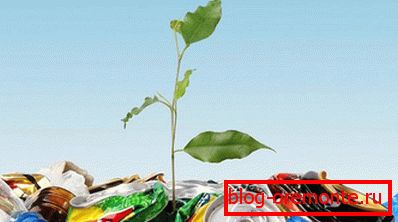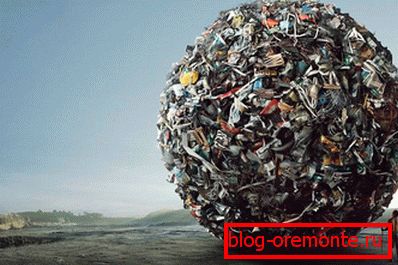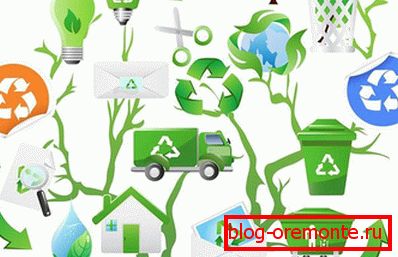The need for a passport for waste and features of the
The daily work of any organizations, especially industrial enterprises, is accompanied by the formation of various wastes. Many of them have a harmful effect on the state of ecology. To assess the negative impact of waste materials on the environment, it is necessary to develop a passport for waste.
The task of a good leader is the desire to organize business processes as efficiently as possible, with a profit, without paying penalties, which can be obtained as a result of the lack of a passport for waste. Registration of such a document should be transferred to the professionals of EcoEkspert. We have many years of experience in the segment of providing this type of service and guarantee short deadlines for order execution. Visit our website.
Specialists of our company are ready to develop a passport for waste, regardless of the level of complexity of the request with minimal participation of the customer. We also conduct a compulsory quantitative chemical analysis (KHA) with the registration of the protocol in an accredited laboratory. It indicates the composition of the waste, determined by the results of the AHC. Mandatory for implementation and carried out by us - the procedure for approval of waste passports in the Federal Office of Rosprirodnadzor.
The cost of creating a waste passport is calculated individually and depends on their quantity, component composition, total amount of work and other nuances. The high level of qualification of our specialists allows you to process all necessary documents for customers quickly and efficiently.

Preparation of a passport for waste
For certain types of waste passport is compiled to assess their impact on the nature and human health. In addition, it is a document for strict waste accounting and state control. It is in the passport of the type of waste that detailed and reliable information is concentrated on its hazard class, key physicochemical characteristics and properties regarding the negative impact on the environment.
Certification, in accordance with the requirements of Rosprirodnadzor and the current legislation, is necessarily carried out for each enterprise in which waste of established hazard classes is generated - from I to IV. It does not matter if the enterprise is large and city-forming, or only a few people work in the organization. The most harmful to the environment are:
- plastic products and packaging from polymeric materials;
- sweeps arising in the process of cleaning the territory;
- mercury and fluorescent lamps.
A passport is required to develop for each type of waste, based on its composition, characteristics and hazard class.
The list of hazard classes adopted in the Russian Federation
The separation of waste into several hazard classes is established in the order of the Ministry of Natural Resources of the Russian Federation No. 511 of June 15, 2001 “On Approving Criteria for Assigning Hazardous Wastes to the Hazard Class for the Environment”. According to this document, the hazardous effects of various wastes on the state of the environment and human health are divided into 5 hazard classes:
- Class I - extremely hazardous waste;
- Class II - high hazard waste;
- Class III - moderately hazardous waste;
- Class IV - low hazard waste;
- Class V - practically non-hazardous waste (it is allowed not to develop passports).
In accordance with the Federal Law №89 from 24.06.1998. (Article 14) all law firms and entrepreneurs who have waste from I to IV hazard class as a result of their economic activity have the obligation to formalize the identification of the generated waste to a particular hazard class in a regulatory manner. If there is no waste at the enterprise, then certification is not allowed.
A properly issued waste passport allows you to successfully pass various inspections of regulatory organizations, draw up an agreement with special organizations for garbage collection, draw up and submit reports as part of environmental legislation. In turn, if the enterprise does not have passports for the types of waste compiled in the prescribed manner, then it may be subject to serious penalties or even to suspend its activities.
How to determine the need to create a passport for waste? If there are special places for waste storage, as well as garbage containers or bins, the document will need to be developed. As practice of court decisions testifies, exceptions in such cases are made only by organizations renting premises in separate business centers, since all waste is exported at the expense of the facility owner (including with the help of specialized companies). Only these legal entities are exempted from the development of waste passports.
Stages of the certification process
Initially, it is necessary to study the full list of waste of a particular enterprise, as well as the NOOLR project and a description of the technologies used in production. Perhaps, the certification procedure has already been carried out before and you can use this information. In the general order of execution, you can select a sequence of steps that meet the requirements:
- collection of available baseline data and their thorough analysis;
- the selection of waste types for which a passport is obligatory, and coordination with the customer;
- selection of research methods for determining the composition and characteristics of waste;
- carrying out chemical (KHA) and morphological analysis of waste;
- determination of the hazard classes of the studied wastes according to the federal classifier or by calculation;
- coordination of preliminary results on the justification of the hazard class of waste in Rosprirodnadzor;
- sending the prepared passports to Rosprirodnadzor with the registration of the notice.
In our company registration of the passport on waste is carried out "on a turn-key basis". It is obligatory to transfer a copy of the developed passport for hazardous waste to storage in the territorial bodies of Rosprirodnadzor.

Peculiarities of passport approval
A new procedure for approval of waste passports has been established since August 1, 2014, taking into account their composition according to the Federal Classification Waste Catalog (FCCW):
- for those wastes that are included in the FCCU - approval is carried out with the mandatory notification and submission of information to the state waste cadastre, and after the provision of passports in paper form to the territorial bodies of Rosprirodnadzor;
- for waste types that are not defined in the Classifier - information is first submitted in paper form to Rosprirodnadzor, and then sent to FBU "FTSAO" to check and justify the established hazard class. No more than 3 months shall be allotted to the identification procedure with the issuance of a conclusion on the compliance or non-compliance of the established type of waste with the accepted hazard class and its transfer back to the Rosprirodnadzor authorities. At the same time, the obligation is provided in the notification of the applicant about the correctness of the assignment or non-compliance of the type of waste with a certain hazard class within 3 days;
- for those wastes that are referred to the hazard class V by the method of calculations, it is necessary to carry out the confirmation experimentally. Otherwise, they can be considered in hazard class IV. To prove the hazard class V waste law firms are required to provide the following information:
- chemical analysis documents and a protocol on the composition of waste types;
- characteristics of occurrence, parameters of occurrence, normal state and physical form of low-hazardous types of waste.
As confirmation of the identified hazard class of waste, a letter is sent to the enterprises (or its copy) from the Rosprirodnadzor authorities on the compliance of the studied types of waste with existing ones.

Validity for passport waste
The developed passports for certain types of hazardous waste at the request of a particular company are valid from the moment they are registered with Rosprirodnadzor and throughout the entire life of the enterprise (indefinitely). In addition, there is no time limit for waste included in FCCW. It will be necessary to reissue passports if additional changes are made to the Federal Classifier or when the composition or parameters of hazardous waste are changed, which is possible, for example, as a result of a change in technology or equipment at the plant. In 2014, mass certification was carried out in connection with the updating of legislation. Previously issued passports also need new design and approval.
No passport for waste
If according to the results of the inspection of the controlling bodies, the enterprise reveals the absence of passports for types of hazardous waste, this is considered to be a violation of the law and punishable:
- for the head or other officials - a fine in the amount of 10,000 to 30,000 rubles;
- for legal entities directly - a fine in the amount of 100,000 to 250,000 rubles, with the possibility of temporarily terminating the operation of the enterprise for up to 3 months.
"EcoExpert" - a reliable assistant in the conduct of certification
Our experienced specialists will issue passports with high quality and in a short time:
- for household waste that is hazardous;
- on medical waste;
- on mercury lamps.
For our regular and future customers, we are pleased to offer:
- excellent level of training and knowledge of the legislation with the latest changes;
- research in an accredited laboratory;
- the implementation of the procedure for the coordination and transfer of information to the authorities of the RPN;
- operational execution and affordable cost of services.
------------------------------------
EkoEkspert, OOO, Moscow
http: // ekoizyskaniya.rf/